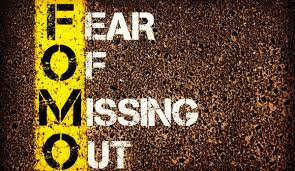The “fear of missing out on experiences” has evolved into a new anxiety disorder associated with social networks that causes the desire to be continuously connected to what others are doing.
In the digital age, where constant connection is just a click away, a phenomenon has taken deep root in our society: the FoMO or“Fear of Missing Out“, translated as the fear of missing out. This phenomenon, although exacerbated by social media and technology, has roots that go back to human psychology and its fundamental needs for belonging and validation.
Novelty is associated with pleasure. Social media notifications that sprout on mobile phones and scrolling are based on this.
In the 1990s Dan Herman described this phenomenon as“a feeling of anxiety that arises when others are perceived to be enjoying positive experiences from which one is absent” and in 2004, Patrick J. McGinnis coined his term as FoMO, properly speaking. Since then, the advent of social media has amplified this feeling, as we are continually exposed to the activities and achievements of others through platforms such as Instagram, Facebook, or TikTok.
But the content posted on social media is not a true reflection of reality, starting with its infinite portfolio of filters that aim to beautify everything, passing through the filter of creators who only show dream lives and ending with the high, and false, expectations of reaching something that is not real .
There is an obsession with not missing out, and this requires being constantly connected to achieve a false sense of belonging and love for followers, who tend to perceive themselves as “friends”, but it also has an application in the psychology of luxury.
☝🏻 FoMO sufferers put their mental health at the service of an algorithm that, if it shows their content and provokes a lot of interaction, provokes a momentary feeling of happiness, but if, on the contrary, it does not, they can become subjected to terrible anxiety and anguish that produces the feeling of“they don’t love me, I am not enough“.
People with low self-esteem and who sometimes feel lonely are more likely to suffer from it. In these cases, social networks provide a feeling of belonging to a group, a virtual warmth that confers a false sense of security as they receive “likes” and comments .
 Sherry Turkle develops an analysis of how our devices redefine communication and human connections with people connected online.
Sherry Turkle develops an analysis of how our devices redefine communication and human connections with people connected online.
Through her essay she leads us into a reflection that circumscribes an ancestral communication system: do we expect less from others, perhaps, to demand or crave more technological support? This changes the paradigm, for example, when it comes to giving a surprise gift? Or at least feeling surprised by the mere fact of delivering it in person.
Today, a “like” or a virtual message is more expected than a phone call. The question is: what makes us feel better right now? .
Because of the general interactions they receive, they are given a false sense of closeness with their messages and a mistaken impression of friendship.
The role of technology in communication then becomes “the technology of loneliness”.
But FoMO in young people, with not necessarily low self-esteem, can trigger feelings of anxiety, insecurities or social pressure, as well as depression and a sense of emotional disconnection due to a lack of real and meaningful interaction with others .
Fernando Checa, an expert in social networks and online marketing at the International University of La Rioja, recommends setting a time limit on the use of technology, especially Instagram or Twitter, turning off the phone occasionally, eliminating the apps that are the most addictive or limiting the time spent on the same app.
The disorder becomes more complicated when a person cannot stay disconnected for between 1 and 3 days, at which point they should ask for help from a psychology professional.
How to deal with FoMO?
There are different strategies and treatments to regain control over our lives :
- Becoming aware and self-assessing: recognising and understanding FoMO is the first step towards change.
- Set limits on social media use: either by limiting your time, turning off notifications, etc.
- Practice gratitude and mindfulness: be grateful for what we have and focus on the present.
- Seek professional support: cognitive behavioural therapy is useful to identify and change patterns.
It is necessary to seek a holistic approach that addresses both emotional and behavioural aspects, with strategies to break free from the paralysing cycle of fear of missing out and start living more fully and authentically.
The germ of this experience is not new and is rooted in the concept of group membership and social exclusion. In a way, there is a need to be part of all the conversations and to be everywhere. “If several events coincide on the same day, at overlapping times, people with FoMO will want and will do their best to attend all of them, even if only in short intervals of time, and at the cost of only accessing information apart.
📎 Alcaine, A. [Albert]. (2025, 05 March). What is FoMO syndrome?. PsicoPop. https://www.psicopop.top/en/what-is-fomo-syndrome/
📖 References:


